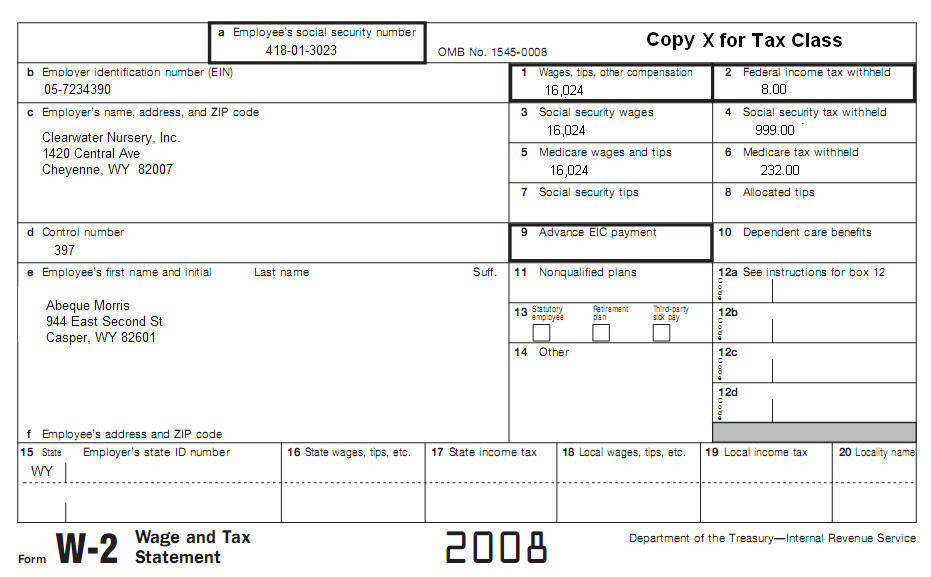|
|
|
Tax Lesson 14 - Earned Income Credit
|
|
This tax topic will teach you the rules and regulations regarding
claiming the earned income credit. The earned income credit (EIC) is a tax
credit for certain people who work and have earned income. A tax credit usually
reduces the amount owed and may give you a refund even if you have had no money
withheld or have made no estimated tax payments along the year.
Tax School Homepage Student Instructions: Print this page, work on the questions and then submit test by mailing the answer sheet or by completing quiz online. Instructions to submit quiz online successfully: Step-by-Step check list Answer Sheet Quiz Online
Most forms are in Adobe Acrobat PDF format.
Use IRS Publication 596 to complete this topic. Complete a tax return for Abeque Morris. Her Children who lived with her all year are: Son: James Gowdy.....(626-12-6525) DOB 4-17-1997 Daughter: Nellie Gowdy....(688-54-5661) DOB 6-18-1995 Abeque was single and was the only person that supported her family in 2008. she also received Interest income from her bank account $390. Complete Form 1040A and Schedule EIC (Form 1040) using the following W2 information. All information on W2 is current, including address information.
|
| Back to Tax School Homepage |




